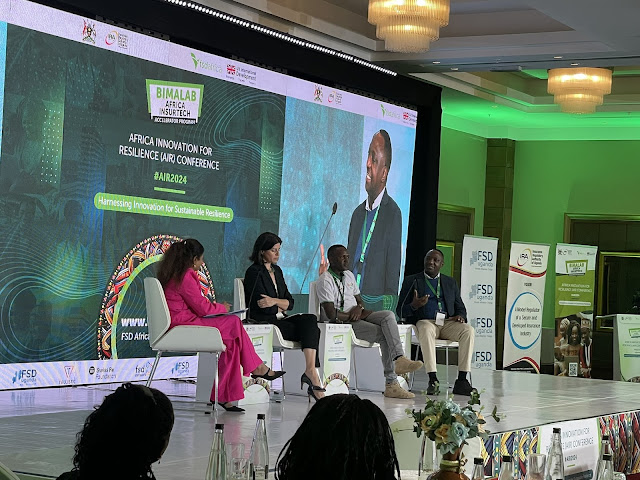𝗚𝗜𝗭 𝗟𝗲𝗮𝗱𝘀 𝘁𝗵𝗲 𝗖𝗵𝗮𝗿𝗴𝗲 𝗔𝗴𝗮𝗶𝗻𝘀𝘁 𝗘𝘀𝗰𝗮𝗹𝗮𝘁𝗶𝗻𝗴 𝗘-𝗪𝗮𝘀𝘁𝗲 𝗖𝗵𝗮𝗹𝗹𝗲𝗻𝗴𝗲𝘀
In Uganda, the issue of e-waste management has
often been overlooked, despite the overwhelming quantities generated. Uganda
generated 17 million kg of e-waste in 2018, and according to the Global E-waste
Monitor report by the UN, it’s projected to grow by approximately 4.5 million
kg per annum. However, the hazardous nature of e-waste and the lack of proper
disposal systems within the country have exacerbated the issue, releasing
toxins such as lead, chromium, and mercury into soil and water sources, posing
significant health risks to humans and wildlife, and contributing to
environmental pollution.
To address this critical issue, the German
development agency, GIZ, launched an initiative to set a trend in proper
e-waste management in Uganda. Glenna
Nabagere, Environmental Policy and Resources Efficiency at GIZ, provided an overview of
the organization's ambition and the key objectives and activities of this
initiative.
GIZ is an
international cooperation for sustainable development dedicated to shaping a
future worth living around the world, In Uganda, GIZ collaborates with other
partners to improve rural development, for better and greener energy supplies
and on good governance.
The initiative aims to create greater awareness
about e-waste management, prompt the emergence of more certified service
providers in the country, and influence various institutions to adopt e-waste
management initiatives. Through these efforts, GIZ seeks to address the
critical challenges in e-waste management and promote sustainable practices to
protect human health and the environment
The activities of the initiative include the
collection of e-waste, safe segregation and transportation to the service
provider's handling sites, items sorting and destruction, recycling, and
refurbishment for reuse.
To address the issues of data security, proper
segregation, and disposal of different e-waste types, GIZ has implemented
robust measures. Glenna explained, "We have a robust data protection
policy. All storage devices are securely erased before being disposed of in our
e-waste bins. Additionally, our certified service provider ensures data
protection by destroying all storage e-waste devices upon arrival at their
handling sites before any further processing."
The organization also implements waste segregation at
the source by providing clearly labeled e-waste bins, indicating the type of
waste to be placed in each bin. The contracted service provider then manages
the disposal process, ensuring that items requiring destruction are safely
processed, while others are recycled and refurbished.
In terms of impact, GIZ's goal is to reduce e-waste
dumping in Uganda by 1,000 tonnes annually, decreasing the release of harmful
substances, including greenhouse gases, and thereby mitigating their
significant negative impacts on both climate and health.
Looking ahead, Glenna shared that GIZ envisions the
program evolving to address the growing challenges of e-waste management in the
digital age. One key focus is to kick start an E-waste management movement
where the E-waste management service providers would have more avenues for
collaboration with the various stakeholders in the field and popularise the
initiative. Through this movement, certified e-waste service providers will be
able to support and help others progress in the industry by developing innovative
recycling technologies, raising public awareness, improving collection and
disposal methods, and advocating for stronger policies and regulations. By
sharing knowledge and resources, these partnerships can collectively promote
and advance the proper e-waste management cycle throughout the country.
GIZ hopes to foster a sustainable and comprehensive approach to e-waste management that adapts to the evolving digital landscape in Uganda.
Story
By Patrick
Seremba | Sources: Exclusive Interview

.jpeg)


Comments
Post a Comment